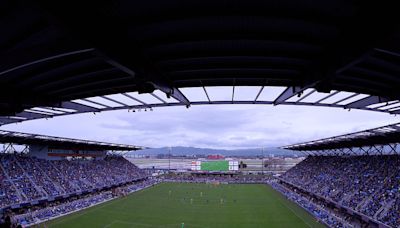Search results
Most Recent Earthquakes Worldwide
earthquake.usgs.govMagnitudeLocationTimeM5.618 hours agoM523 hours agoM5.31 day agoM6.11 day agoM5.21 day agoM52 days agoM5.72 days agoM52 days agoAn earthquake – also called a quake, tremor, or temblor – is the shaking of the Earth's surface resulting from a sudden release of energy in the lithosphere that creates seismic waves.
An earthquake refers to the shaking of the earth’s surface caused by a sudden release of energy within the earth’s crust. This release of energy generates seismic waves, commonly known as S waves. The intensity and characteristics of an earthquake are determined by the seismic activities occurring in a specific region.
2 days ago · Earthquake, any sudden shaking of the ground caused by the passage of seismic waves through Earth’s rocks. Earthquakes occur most often along geologic faults, narrow zones where rock masses move in relation to one another. Learn more about the causes and effects of earthquakes in this article.
Search Earthquake Catalog Time Zone. Display event dates and times using this time zone.
Quakes Near India Now, Today, and Recently. See if there was there an earthquake just now in India
Oct 19, 2023 · Hundreds of earthquakes occur on Earth everyday. Most of them are small, barely detectable by most people. But occasionally there is a much more significant quake. On average, a major earthquake —one with a magnitude of 7.0-7.9—strikes somewhere on the planet more than once a month.
Feb 6, 2023 · February 6, 2023. • 7 min read. Earthquakes, also called temblors, can be so tremendously destructive that it’s hard to imagine they occur by the thousands every day around the world, usually ...
EMSC (European Mediterranean Seismological Centre) provides real time earthquake information for seismic events with magnitude larger than 5 in the European Mediterranean area and larger than 7 in the rest of the world.
An earthquake is caused by a sudden slip on a fault. The tectonic plates are always slowly moving, but they get stuck at their edges due to friction. When the stress on the edge overcomes the friction, there is an earthquake that releases energy in waves that travel through the earth's crust and cause the shaking that we feel.
Jun 13, 2024 · Earthquake is a name for seismic activity on Earth, but Earth isn’t the only place with seismic activity. Scientists have measured quakes on Earth's Moon, and see evidence for seismic activity on Mars, Venus and several moons of Jupiter, too!

